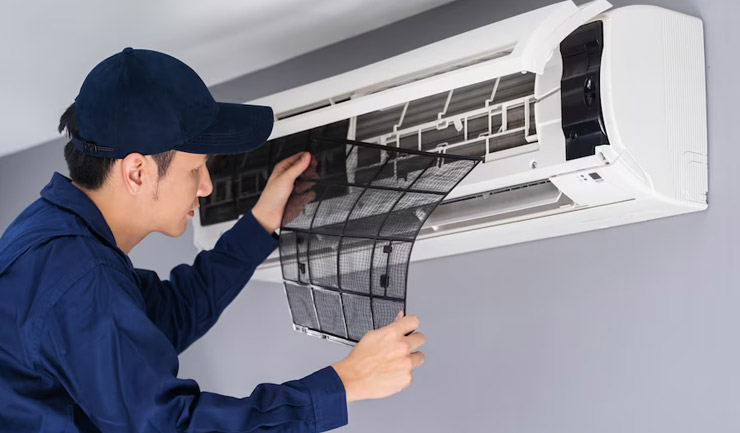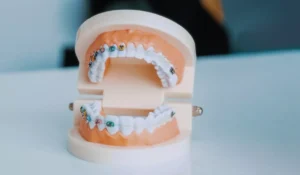When it comes to the comfort and functionality of our homes, few things are as essential as our HVAC systems. The luxury of a toasty warm home in winter and a cool, refreshing space in summer is a modern convenience we often take for granted—until something goes awry. For homeowners, the question often arises when facing HVAC issues: should I attempt to fix it myself or call in the professionals? This comprehensive guide dives deep into the pros and cons of DIY HVAC repairs, what factors to consider before breaking out the toolkit, and worthwhile alternatives that could save you more than money.
The Importance of HVAC Systems in Homes
Before we judge whether DIY HVAC repair is worthwhile, it’s crucial to understand the significance of these systems. Heating, ventilation, and air conditioning (HVAC) ensure a consistent and comfortable indoor temperature regardless of the season. Beyond comfort, they play a pivotal role in maintaining air quality and humidity levels to foster a healthy living environment.
The complexity of these systems, however, means that malfunctions are not uncommon. Homeowners may encounter a wide range of issues, from a simple clogged filter that reduces system efficiency to a malfunctioning thermostat causing temperature fluctuations.
Pros of DIY HVAC Repairs
Cost-Saving Benefits
For many, the most compelling argument for DIY repairs is the potential to save on repair costs. Considering the high labor fees that can accompany professional services, tackling a repair oneself can substantially reduce the financial burden. DIY-ers may find that the overall cost of fixing an HVAC issue pales in comparison to a service call from a technician.
Learning Opportunity for DIY Enthusiasts
Beyond cost-saving, there is the invaluable benefit of knowledge acquisition. Each successful DIY repair adds a notch to your handyman belt, empowering you to handle more tasks around the house. With comprehensive online resources and tutorials, the learning curve for basic HVAC maintenance has become more accessible than ever before.
Immediate Response to Minor Issues
Certain minor issues can be resolved without much time or expertise. For instance, maintaining and replacing air filters as needed can significantly extend the life of your HVAC system. A DIY approach here means addressing problems as they arise without waiting for a technician’s availability.
Cons of DIY HVAC Repairs
Safety Risks and Hazards
HVAC systems involve delicate components and, in the case of gas furnaces, potentially hazardous situations. Improper handling, especially without safety equipment, can lead to accidents or exposure to harmful elements. It is critical for DIYers to recognize their limitations and not take on repairs that could endanger their safety or health.
Voiding Warranties
Many HVAC systems come with warranties that could be nullified if a homeowner attempts DIY repairs without the manufacturer’s approval. This warranty protection is a valuable asset and ensures that any serious or recurring issues can be addressed by the professionals without additional costs.
Lack of Expertise and Tools
While addressing minor issues is manageable for some, most HVAC repairs require a level of expertise and specialized tools that the average homeowner does not possess. Misdiagnosing a problem or using the wrong tools can lead to more extensive damage, turning a DIY project into a costly repair.
Factors to Consider Before DIY Repairs
Complexity of the Issue
Before deciding to repair your HVAC system on your own, it’s important to have a clear understanding of the problem’s complexity. A simple tripped circuit breaker can be reset fairly easily, but diagnosing and repairing a refrigerant leak in your air conditioning system is a job best left to professionals.
Safety Precautions
Safety should always be the top priority when it comes to dealing with HVAC systems. Familiarize yourself with the system’s components and take all necessary precautions. If a repair involves electrical work or dealing with refrigerants, extreme care must be taken.
Assessing Skills and Knowledge
Be honest with yourself about your skills and knowledge. Confirm that you have a good grasp of the task before you begin. If in doubt, seeking guidance from a professional can prevent mistakes that could cost you more in the long run.
Alternatives to DIY Repairs
Hiring Professional HVAC Services
Sometimes, the best course of action is to leave it to the experts. Professional HVAC technicians have the training, experience, and tools to handle complex repairs safely and efficiently. They can also provide maintenance tips and identify potential issues before they become major problems.
Regular Maintenance and Preventive Care
Regular maintenance can go a long way in preventing issues with your HVAC system. Simple tasks like cleaning coils, checking for leaks, and changing filters can keep your system running smoothly. By being proactive, you may avoid a significant repair altogether.
DIY vs Professional Repair Verdict
In the battle of DIY versus professional repair, the answer isn’t always black and white. It significantly depends on the issue at hand, your comfort level with the task, and the resources available to you. While DIY repairs can be gratifying and cost-effective in certain situations, they’re not without their risks. By carefully weighing the pros and cons and considering the alternatives, you can make an informed decision that ensures the well-being of your home and your pocket.
For homeowners and DIY enthusiasts facing an HVAC issue, remember that your safety and the integrity of your home’s systems should always be the top priorities. When in doubt, consult with a professional who can guide you in the right direction. Rest assured, whether you’re resting in warmth or in a cool breeze, you’ve made a smart choice for your household comfort.



